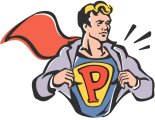Writing Terms
In your language arts and English classes, you will encounter many specific terms that relate to writing.
Knowing the meanings of these terms will make you a more effective reader and writer.
Here are twenty important writing terms whose meanings you should know.
Anecdote – A short account of a particular incident or event, typically of an interesting or amusing nature.
Autobiography – A writer`s account of his or her own life. This is in contrast to a biography, which is a story of someone`s life written by another person.
Characterization – A process by which a writer reveals a fictional character`s personality to the reader.
Cliche – A phrase or expression that has been so overused that it has lost its significance. Good writing avoids the use of cliches.
Connotation – The emotion or feeling that a word creates.
Denouement – The final clarification or resolution of a plot in a written work.
Dialog – A conversation between two or more characters in a literary work. Dialog is set off by quotation marks.
Didactic – A form of writing that teaches something.
Epigram – A brief or witty saying or poem.
Hyperbole – An excessive exaggeration.
Irony – An outcome of events that is contrary to what was expected to happen.
Juxtaposition – Placing two words or ideas close together for contrast or interest.
Myth – A story passed down over the generations that was once believed to be true.
Oxymoron – Two words of nearly opposite meaning that are put together for a special effect.
Parable – A short story that teaches a moral or religious lesson.
 Protagonist – The main character or hero in a story.
Protagonist – The main character or hero in a story.
Pseudonym – A false name used by a writer, often referred to as a pen name.
Style – How a piece of literature is written rather than what is actually said.
Theme – The idea that a writer wishes to convey about a subject.
Tone – The attitude of a writer toward his or her subject.
Knowing the meanings of these twenty terms will be helpful to you in your language arts and English classes.
